 When Nurses decide to be educated in a certain area, it is very likely they will acquire a position that allows them to utilize the skills and knowledge obtained during school and training. While many continue on in their area of expertise, some decide to change specialties and focus on another area.
When Nurses decide to be educated in a certain area, it is very likely they will acquire a position that allows them to utilize the skills and knowledge obtained during school and training. While many continue on in their area of expertise, some decide to change specialties and focus on another area.
With the human body being so complex and so much to learn, some Nurses may decide to work in a number of specialties throughout their career. For some, it can be exciting and rewarding to switch things up. However, before deciding to switch specialties and take on a new list of duties and responsibilities, please consider the pros and cons before doing so.
What are the Pros of Changing Specialties?
* Adding to your Skill Set
Working in one specialty may become boring because you are doing the same thing every day and perhaps not learning anything new. Changing specialties will allow you to put an end to that boredom, add to your skill set, challenge you, and give you a reason to love your work more. It looks good on a resume to be someone who is versatile and able to work in more than one area of the medical field.
* Potential Opportunity for a Higher Salary
There are many things that factor into what makes someone change their specialty. Money is possibly one of them. Changing specialties doesn't always mean you'll make more money, but there is a chance you will. Be sure to check the average income of someone working in the specialty you're considering.
* Opportunity for Growth
With some specialties, there is no room for growth or advancement. This is acceptable for some people, but a lot of Nurses want a job where they can be promoted and continue to earn more money. Take a hard look at where you were when you first started working and where you are now. If your current specialty doesn't offer the type of advancement opportunities that another specialty would, it may be time to make the switch.
What are the Cons of Changing Specialties?
* Decreased Chance of Promotion
Oftentimes, when a company promotes Nurses, they look for Nurses who have been with them for several years, and who are knowledgeable and experienced in their field. Even if you've worked for the same company, changing specialties can be like starting out as a new employee. Before a promotion becomes a possibility, you'll most likely have to work your way up and gain experience in your new field. This could take years, depending on the difficulty of the your new specialty.
* Stress
A new specialty means you'll be doing things you're not used to doing. This can lead to an extreme amount of stress because you want to perform well and be noticed for the great work you're doing. Being the new kid on the block means every move you make will be monitored closely. It can be uncomfortable and stressful to be in this situation.
* Financial Instability
Higher pay is possible, but it may not happen right away. Because you have to learn the ropes and gain experience in your new specialty, you may not make the salary that everyone else in this specialty is making. This is especially true if you need to go to school for a year or two.
When you change your specialty, it doesn't always mean you can't go back to working in the specialty in which you started. Ideally, people making this change are hoping for the best and plan to stay in the specialty for some time. Whatever is decided, the goal is to be happy in what you do.
Have questions about changing your specialty? Ask one of our Nurse Leaders! Click below.


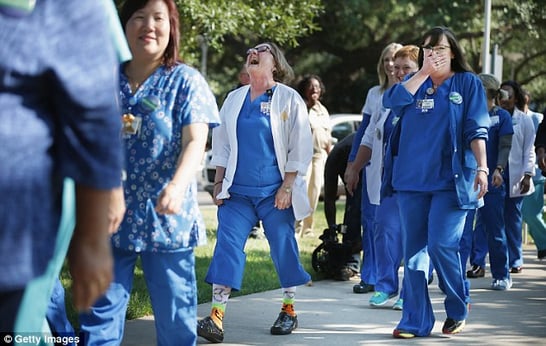 The Nursing profession is notoriously high-pressure. Many patients that Nurses encounter are in a grave state of need, and Nurses may not always meet their patients' needs, despite their best efforts. With so many individuals needing a coping mechanism, it's no wonder that many people turn to the power of humor and laughter.
The Nursing profession is notoriously high-pressure. Many patients that Nurses encounter are in a grave state of need, and Nurses may not always meet their patients' needs, despite their best efforts. With so many individuals needing a coping mechanism, it's no wonder that many people turn to the power of humor and laughter.
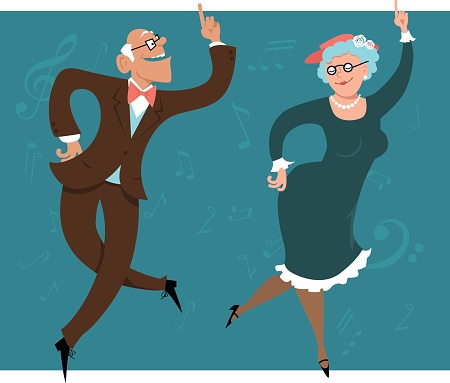 As the growing baby boomer generation begins their retirement, so too begins a wealth of golden opportunities for investors and job seekers in the senior care industry. Of particularly exciting growth are the providers of in-home health care services. This includes people who specialize in everything ranging from medical assistance to basic health assistance like bathing and grooming, keeping up with housekeeping, and meal preparation.
As the growing baby boomer generation begins their retirement, so too begins a wealth of golden opportunities for investors and job seekers in the senior care industry. Of particularly exciting growth are the providers of in-home health care services. This includes people who specialize in everything ranging from medical assistance to basic health assistance like bathing and grooming, keeping up with housekeeping, and meal preparation.
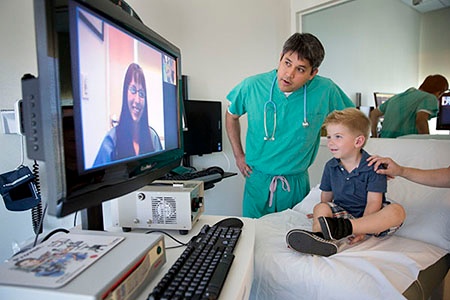
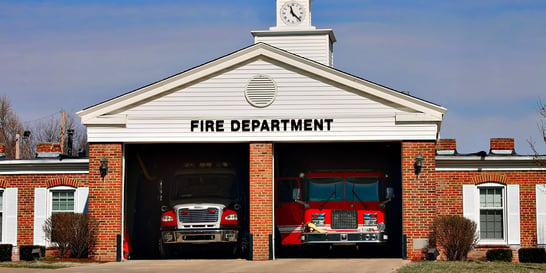 Last year the Green Valley Fire District began what is best described as a "mobile urgent care" and next month they will be sharing it in Washington D.C.
Last year the Green Valley Fire District began what is best described as a "mobile urgent care" and next month they will be sharing it in Washington D.C.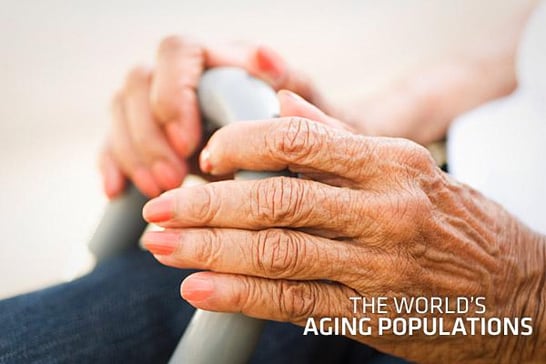 America is getting old. Not the nation itself, but the average age of the citizens that call America home. According to the US government's census and population board, by 2030 the Baby Boomer generation will be over the age of 65 and as such, the shift in demographics will cause many changes to the USA's way of life and tending to the aged. One such area where these changes will see direct effects is in the palliative care and nursing home care for aging and senior citizens.
America is getting old. Not the nation itself, but the average age of the citizens that call America home. According to the US government's census and population board, by 2030 the Baby Boomer generation will be over the age of 65 and as such, the shift in demographics will cause many changes to the USA's way of life and tending to the aged. One such area where these changes will see direct effects is in the palliative care and nursing home care for aging and senior citizens.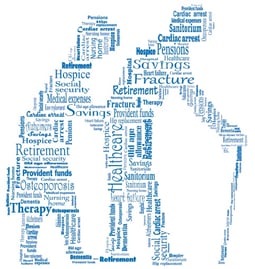
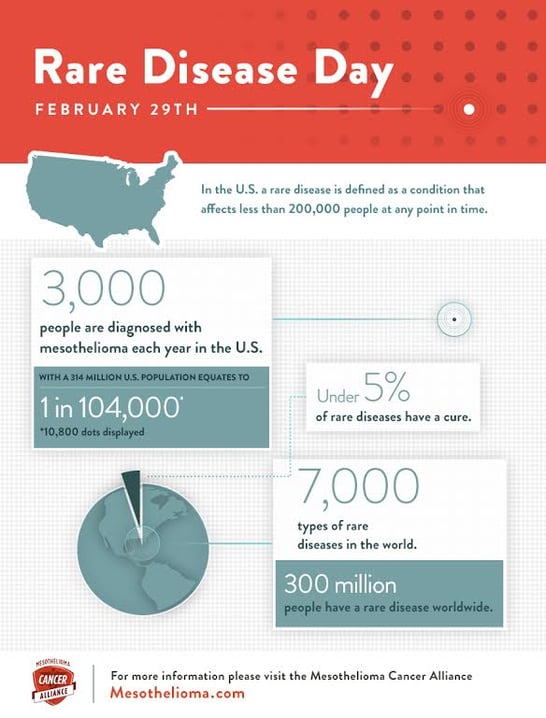

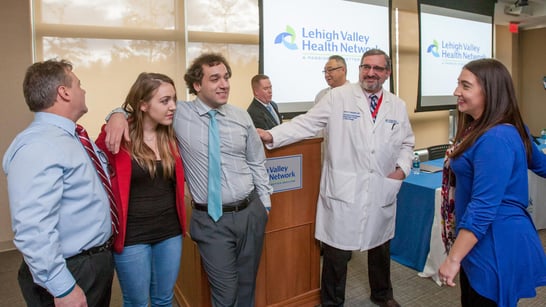
 The healthcare industry is filled with challenging and rewarding job opportunities. For those who are actively pursuing a career in nursing and who eventually wish to acquire leadership roles in that field, striving for the occupation of Chief Nursing Officer is a worthwhile endeavor. To be a successful CNO in the healthcare system there are specific requirements, qualities, and skill sets that the industry requires of their employees. These attributes can determine the likelihood of potential employment. Along the same vein, what does it really take to become a good CNO (Chief Nursing Officer) in the medical sector?"
The healthcare industry is filled with challenging and rewarding job opportunities. For those who are actively pursuing a career in nursing and who eventually wish to acquire leadership roles in that field, striving for the occupation of Chief Nursing Officer is a worthwhile endeavor. To be a successful CNO in the healthcare system there are specific requirements, qualities, and skill sets that the industry requires of their employees. These attributes can determine the likelihood of potential employment. Along the same vein, what does it really take to become a good CNO (Chief Nursing Officer) in the medical sector?"